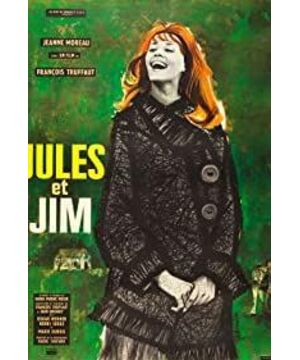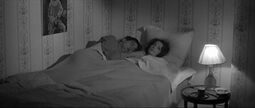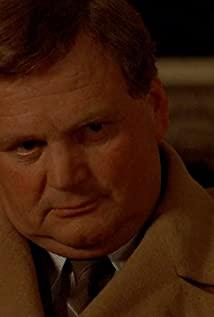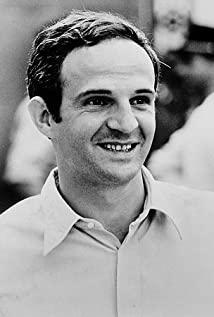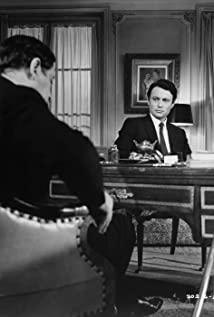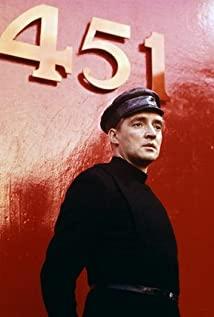"You say: I love you, I say, stay. I almost want to say: Take possession of me, but you say to go." -Truffau, "Juul and Jim" "When you kiss your lover, don't leave the gun. ."-68 French student movement's propaganda slogan "Where is the father?"-Truffaut's "Four Hundred Strikes" A stubborn revolution is like falling madly in love with a woman who shouldn't be loved. In September 1871, a thin young man with blurred eyes and unruly eyes wandered aimlessly in Paris. The depressive atmosphere of the Commune's just failure hung over Paris. Carrying a pile of poems and dozens of Sus, this young man walked on the bloodstains that had not yet dried and visited Verlaine, the great poet who had just ended his licentious life and entered a happy marriage. He read his brilliant works to Verlaine one after another, telling about his sodomy life with different male members in the commune a few months ago. The two were drunk in the tavern, insulting all pretending writers, praising the revolution, and toasting to the victims of the commune. Two years later, Verlaine fired a crazy shot at the talented young man, and the bullet condensed with painful love was shot into the young man's skinny palm. Eighteen years later, this young man wandered to the end of the African desert and left the world miserably and unrestrainedly. His name was Altiel Rimbaud-the next century was enough to prove that this poem "Psychic" realized his childhood language: "Invented the color of vowels." In Mr. Wang Yipei's translation In, we can best see how angry the poet was when he faced the failure of the revolution: "Looking up to the sky,-the sky is too small for us, / We will burst with heat, and we will kneel down! / Looking up to the sky ,—— I went back to the crowd, / Back to the terrifying and great untouchables, they pushed your old cannons on the dirty streets: / When we die, we will clean the streets! / If faced Our shouts and revenge,/The golden minions of the old king dare to be in France/Assemble their fangs and claws,/Okay, are you all here?-Damn, shoot at these dogs!" If the revolution is only a momentary enthusiasm, it is irresponsible; if the revolution is a lifetime enthusiasm, it is called mental illness; after a momentary enthusiasm, integrate the revolutionary spirit into a lifetime of tolerance and compromise, rebellion and resistance, responsibility and persistence. They are the truly great revolutionaries and the real men. Just ninety-seven years after the failure of the Paris Commune, the Commune miraculously resurrected overnight. The enthusiasm of 1968 is no longer just a historical concept, it has long since become a profound political and cultural concept immersed in subsequent social evolution and ideological writing. Among the various books about 68 published in the market, the book "France 1968: the beginning of the end" is the most exciting. The two authors are at the center of the storm every day. Their reports and analysis on the progress of the movement in the first time have a strong sense of the scene, eloquence and profound insight, allowing readers to be on the scene. Since it is a "revolution," the first thing to show us is every fanatical detail. In this book, we can see how poor students are dissatisfied with the rich class and how unbearable they are with the mechanized education system; we can see how the "poet full of a galaxy" was born once the enthusiasm came. ; We can see how workers resisted in the face of the alienation of modernity-of course, in a frenetic environment, how weak this kind of resistance is in the face of the modern material production system with a high degree of fine division of labor, etc. wait wait wait. Fragmented individuals in modern society have once become "masters", but find that they have no ability to accomplish anything. And "Once the National Assembly becomes a place of gossip, all the places of gossip become the National Assembly." If the Commune of 1871 was defeated by the suppression of external hostile forces, then the Commune of 1968, which was born in a modern rational society, is doomed to be the fate of the internal disintegration. "Truth is a profound comedy that people can't laugh, because it is only a thin line from the tragedy in history." After the revolution ended in fanaticism, the next step was to face a ruthless entropy increase. However, the end of the fanaticism means the beginning of the revolution as an emotion. The collective political movement fell apart. All gains and losses, all happiness, depression, and pain have all fallen to the shoulders of the individual. Will he have the ability to carry this burden on the individual's future life? He will testify to the tombstone at the end of himself. Only a revolution in the sense of individual existence is truly artistic and truly beautiful. Just nine years before this "beginning of the end", another revolution that shocked the world broke out in the same country. It took place in the field of art, but its influence was extremely wide, even with the occurrence of the 68th Revolution. connect. This is the "new wave movement" in the history of French cinema. In transforming revolutionary consciousness from collective events into individual responsibility, film—as an art form with the greatest emotional impact—has an extremely important role. The two main leaders in the new wave, Godard and Truffaut, from the standpoint of intellectuals and their direct political involvement, Godard is naturally the banner of this revolution; but when it comes to the depth of emotion and the profoundness of influence Truffaut is the soul of the French New Wave. Truffaut's unfortunate childhood and rough teenage experience have not erased his charming eyes, charming smile and delicate love for the world. The new wave came fiercely, but it went quickly. In 1962, when the new wave was already weak, Truffaut released perhaps the most romantic movie in film history: "Juul and Jim". It has nothing to do with revolution, but its idyllic sentimental love story may symbolize the destiny of existence in the face of revolution. Juul is an honest and honest German youth, and Jim is a romantic and unruly French youth. Both of them love literature and art and draw each other as confidantes. The beginning of the film is a series of cheerful scenes and music. A young man who is as big as a pig scribbles the revolutionary slogan of "Beat Everything" on the wall while gaining strength from his girlfriend beside him from time to time. As the Chilean poet Neruda said: “The two things in this world that can make me passionate the most are revolution and love.” This girl also seeks adventure and excitement in love all her life. She got rid of this. The fat revolutionary youth jumped into the carriage of Juul and Jim. In Juul's room, there is something that appears several times in the film, that is, a timing hourglass. The hourglass is over, and all the game is over. For the first time, the sorrow of fate showed its traces. The girl’s name was Catherine. Before camping, she took out a bottle of sulfuric acid and said, “This sulfuric acid is used to lie to men’s eyes” and poured it into the sink. It was tragic in the end. When the war broke out, two good friends became members of their rival camps. Fortunately, the two did not meet on the battlefield. After the war, Jim visited Juul, who was married to Catherine, but found that Catherine, who had an adventurous nature, could not bear the bondage of marriage and had fornication with many men. Juul was completely disappointed. Jim’s long-term residence made him feel affection with Catherine, and Juul hoped that Jim and Catherine would get married so that the three of them could continue to live a harmonious and happy life. However, the married Jim had to wander between his wife in Paris and Catherine in the countryside. Every meeting leads to parting, and every parting tightens the next meeting. Finally, Catherine, who experienced the pain of true love in a lifelong adventure, smiled brightly and drove the car carrying Jim into the river to commit suicide. Jule looked at the ashes of the two people, finally freed. Juul and Jim "The friendship between the two is incomparable to love. They look for fun in trivial matters and are not displeased by conflict. From the very beginning, they were called Don Quixote masters and servants." Reflecting friendship, love and There are too many revolutionary films, such as Bertolucci’s "1900" and "The Dreamer", such as Sergio Leone’s "Revolutionary Past", but it is precisely such a romantic movie that has nothing to do with revolution on the surface. Because it shows the destiny of emotions in an extremely delicate form, you can think of it as a film that shows existence and revolution-if revolution is a life complex, it is an existence that faces the boundaries of the human world. The burden of words. The quote at the beginning of this article is the diversion from the beginning of the film. I think there is no more appropriate language than this sentence to describe a revolution that is entangled with political history. The core demand of the revolution is to control history. The slogan of 68 years is "The best person is to live the future in the present and turn everything into the future." However, the destiny of history is like this Catherine. Emotional injury, repeated parting and reunion add more and more weight to the love in Juul and Jim's hearts. However, only these heavy weights have given the revolution constructive and lasting value. In the film, Juul said to Jim: "In German, war, death, and the moon are all masculine, while the sun and love are feminine. However, life is asexual." If there is also a word of speech for "revolution". , I think it is both masculine and feminine. When it appears as a collective event, as a fanatical atmosphere, it is masculine; when it is a standpoint that an individual silently insists on, as an unknown conduct for a lofty life value When compromising and rebelling, it is feminine, or feminine. Only women will silently carry out constructive work in a pile of ruined worlds, approaching a kind of impossible nothingness. . Both masculine and feminine are indispensable. Without timely masculine, the weak fire of feminine revolutionaries will eventually be extinguished; without silent feminine, masculine fanaticism can only bring destruction. However, whether it is masculine or feminine, life is cruel, that is, "asexual". Truffau was an illegitimate child from the moment he remembered, and he almost never knew who his biological father was. In his signature movie "Four Hundred Strikes", there is a plot in an English class. The English teacher solves the problem of English pronunciation by asking his students to recite a sentence repeatedly. This sentence is: "Where is the father? "The revolutionary movement of 1968 may be a radical spiritual journey to find the father in this fragmented world that lacks a unified vision, although this journey is destined to have no end. A large number of people after the 1970s French postmodernist thinkers such as Foch, Lyotard, Baudrillard and others have continued torture dialogue with 68, which is the rational continuation of this "revolutionary" spirit. We are still walking in this search today. On my father’s journey. Family background and childhood misfortune, we see a hint of melancholy in Truffau’s charming eyes, and his film also expresses the irony of this cold society in the rhythm of the charming. Either’s works exquisitely express the tragedies of extreme emotions, such as "Soft Skin", "Juul and Jim", "Shooting the Pianist", etc., or use a joke melody to lash out the cruelty and coldness of this society, Such as "Four Hundred Strikes", "Stealing a Kiss", "A Beautiful Woman Like Me", etc. But as Truffaut himself said: "Life can be hard, but it can also be wonderful... Time flies, and soon you will have kids. If you love them, they will love you too... That is life, everyone needs to be loved. "In his works, the protagonist has gone through misfortunes, but is experiencing love with difficulty. Through his works, he has expressed his concern for humanity-this kind of care is so nuanced that Godard, who is "reasonable in rebellion," cannot do it. Mr. Shen Yubing said: "(Truffau) is different from the comrades who debuted with him (especially Godard and others). Broadly speaking, he is also different from the mainstream of French left-leaning intellectuals. He is and is just a great A humanist, he doesn’t think that revolution will end the dark side of humanity once and for all. Instead, he focused on describing the bright side of human nature and, like his spiritual mentors, Bazin and Renoir, appealed to human compassion, tenderness and humor. "He stands on the opposite side of all undesirable things, yet feels empathy for every lonely and helpless individual in it. It is really heartbreaking. Sometimes knowledge is cold, and the heart of Truffaut who has not received a few years of orthodox education. But so fierce. He deserves the title of a truly great revolutionary-if the meaning of "revolution" is expanded as I mentioned earlier. Neruda said in his autobiography: "Loneliness and crowds will remain the basic responsibilities of contemporary poets... I am a part of the vast majority, another leaf on the giant tree of mankind... From the tide of life, I have learned more from the gentle sight of the thousands of pairs of eyes that are watching me at the same time. This kind of information may not be conveyed to all poets, but the person who hears it will remember him in his heart, and it will be in his own heart. In his works." What a revolutionary mindset this is! We might as well divide revolutionaries into two categories: politicians and poets-except for the fools. Politician revolutionaries are good at organization, have a strong desire for power, self-confidence, and perhaps strong ability, but what makes such people really fanatical is not revolutionary ideals, not spiritual search for the father, but power, and the desire to control; while poets and revolutionaries have romanticism They can't extricate themselves from the sense of worry, immersed in beauty and suffering, and perhaps they will also compromise with reality, but their "overthrow" is the most thorough, and their tragic complex is deeply ingrained. Their shortcomings may be weakness, but they are so weak and beautiful—even magnificent. It's like the last car driving into the river in "Juul and Jim"! Just like the revolutionary who blew himself up at the end of "Revolutionary Past"! They are most likely to maintain their conscience in the deceitful revolutionary practice, and hope for the future can still only rest on them. Although the enthusiasm of 68 is over, the revolution never ends. As long as the human spirit always exists as the opposite of the bondage of the system and the bondage of the body, as long as your heart still trembles feverishly for certain emotional experiences in life, as long as you continue to fight to prove the value of life, the revolution will never last. Endless-no matter thought or action. In the revolutionary masculinity and femininity, the tension presented by life is like a sunset glow. Although the enthusiasm of 68 is over, the revolution never ends. As long as the human spirit always exists as the opposite of the bondage of the system and the bondage of the body, as long as your heart still trembles feverishly for certain emotional experiences in life, as long as you continue to fight to prove the value of life, the revolution will never last. Endless-no matter thought or action. In the revolutionary masculinity and femininity, the tension presented by life is like a sunset glow. Although the enthusiasm of 68 is over, the revolution never ends. As long as the human spirit always exists as the opposite of the bondage of the system and the bondage of the body, as long as your heart still trembles feverishly for certain emotional experiences in life, as long as you continue to fight to prove the value of life, the revolution will never last. Endless-no matter thought or action. In the revolutionary masculinity and femininity, the tension presented by life is like a sunset glow.
View more about Jules and Jim reviews


